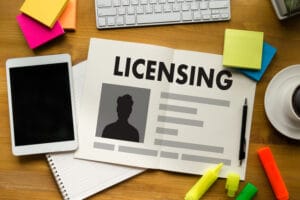Assembly Bill 2138 will reduce barriers to obtaining occupational licenses
If you hold a professional license issued by the state of California, you are likely aware of how challenging it can be to be approved for a license. In order to obtain a professional license, applicants are generally required to self-disclose the details of their criminal history, and could have their license revoked, denied or suspended by a licensing board. This made it difficult for the approximately 8 million Californians with a criminal record to move forward with their lives after serving time.
Occupational licensing is a prerequisite to working in almost 200 jobs in California. As a criminal lawyer in Los Angeles County, CA, having a criminal record may prevent a person from getting a job in a host of fields, from contracting to medicine to law. A new law, Assembly Bill 2138, will change that reality.
Under AB 2138, which goes into effect on July 1, 2020, having a criminal record will no longer prevent an individual from getting or holding a professional license in California (with some exceptions). This law applies to 42 licensure boards within the California Department of Consumer Affairs. It changes existing law substantially in the following ways:
- A licensing board cannot revoke, deny or suspend a license due to an individual’s past criminal convictions if the conviction is older than 7 years, or is not substantially related to the duties and functions of the occupation (except for felonies, sex offenses, and relevant financial crimes).
- Applicants are not required to self-disclose their criminal history before a background check by the California Department of Justice, unless the license application does not require a fingerprint background check.
- Licensing boards cannot deny applications for dismissed convictions or acts that did not lead to convictions.
- Licensing boards cannot deny licensure due to a conviction that was expunged, dismissed, pardoned, or if the applicant made a showing or rehabilitation for a felony conviction.
- Licensing boards must track and publicly report denial and appeal data.
Before this law was passed, a licensing board could deny, revoke, or suspend a license for almost any criminal conviction, even if the crime itself was unrelated to the occupation. Now, the licensing board can only consider these convictions if they are within a certain time frame and if they are related to the job at hand. For example, if a person had an arrest for petty theft at age 18, the nursing board may not be able to use that conviction 10 years later to deny a nursing license to the applicant.
Of course, convictions that are related to the person’s professional license will still be relevant and could be the basis for denial, suspension, or revocation. For example, if a person is convicted of child abuse, they may be denied a license to work with children as a therapist.
While this law will provide relief to millions of Californians, it does not change the fact that having a criminal record can make it difficult to obtain a job. That is why it is so important to work with a skilled criminal lawyer in Los Angeles County, CA who will aggressively advocate for your rights in a criminal case.
At the Chambers Law Firm, we have significant experience representing individuals who have been charged with all types of California crimes. Contact us today at 714-760-4088 or dchambers@clfca.com to schedule a consultation with a member of our team.





